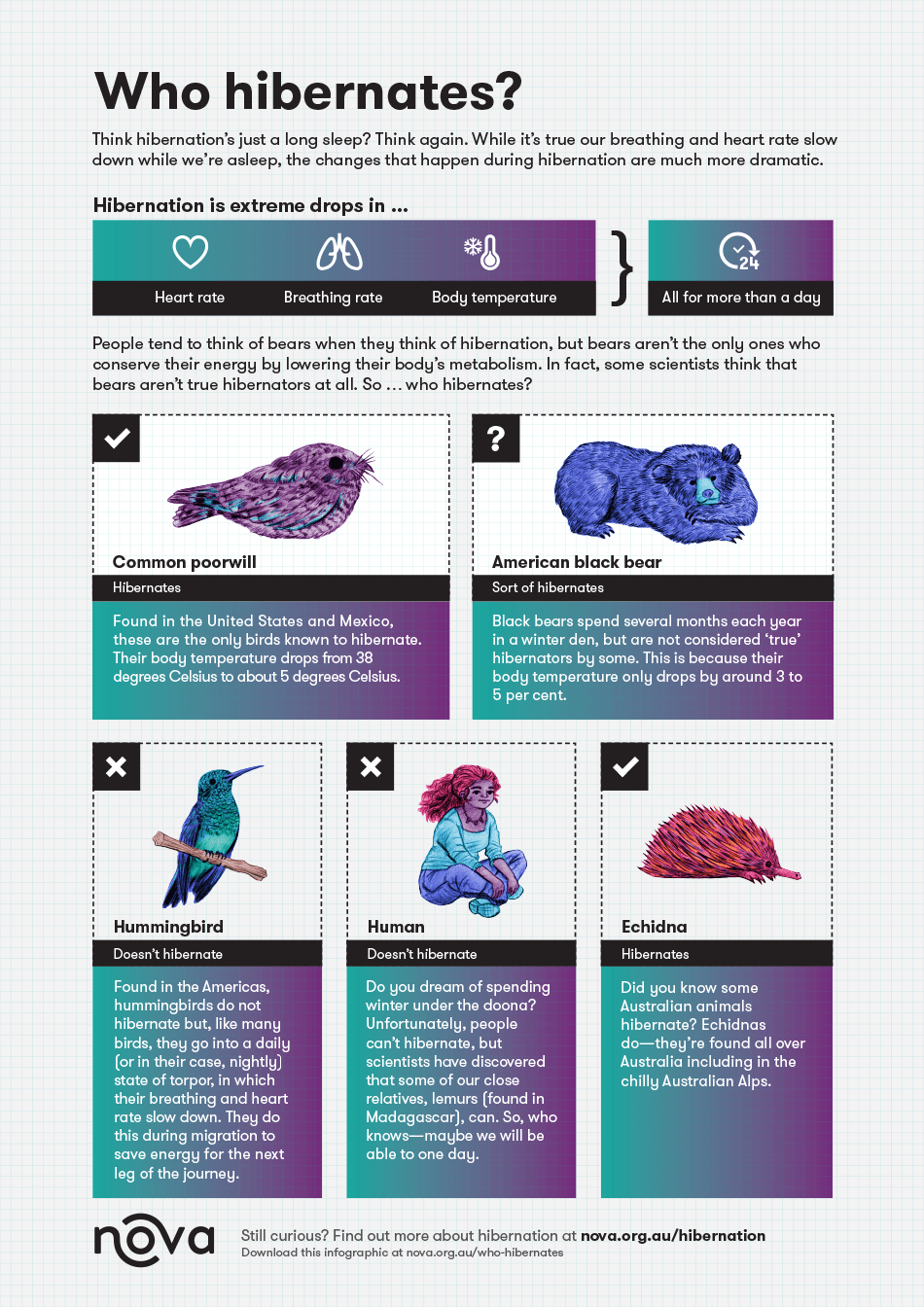- Home
- Infographics
- Hibernation
Hibernation
Think hibernation is just a long sleep? Think again. This infographic will explain what hibernation is and provide examples of animals that do—and do not—hibernate.
Who hibernates?
Think hibernation’s just a long sleep? Think again. While it’s true our breathing and heart rate slow down while we’re asleep, the changes that happen during hibernation are much more dramatic.
Hibernation is extreme drops in:
- Heart rate
- Breathing rate
- Body temperature
All for more than a day.
People tend to think of bears when they think of hibernation, but bears aren’t the only ones who conserve their energy by lowering their body’s metabolism. In fact, some scientists think that bears aren’t true hibernators at all. So … who hibernates?
American black bear: sort of hibernates…
Black bears spend several months each year in a winter den, but are not considered ‘true’ hibernators by some. This is because their body temperature only drops by around 3 to 5 per cent.
Echidna: hibernates
Did you know some Australian animals hibernate? Echidnas do—they’re found all over Australia including in the chilly Australian Alps.
Hummingbird: doesn’t hibernate
Found in the Americas, hummingbirds do not hibernate, but, like many birds, they go into a daily (or in their case, nightly) state of torpor, in which their breathing and heart rate slow down. They do this during migration to save energy for the next leg of the journey.
Common poorwill: hibernates
Found in the United States and Mexico, these are the only birds known to hibernate. Their body temperature drops from 38 degrees Celsius to about 5 degrees Celsius.
Human: doesn’t hibernate
Do you dream of spending winter under the doona? Unfortunately, people can’t hibernate, but scientists have discovered that some of our close relatives, lemurs (found in Madagascar), can. So, who knows—maybe we will be able to one day.
More information
Still curious? Find out more about hibernation at nova.org.au/hibernation
Download this infographic at nova.org.au/who-hibernates






